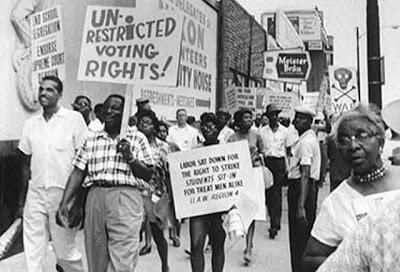Understanding today or tomorrow is an almost impossible task, the present being anything but a sitting duck and the future a black swan. Even those who have a better-than-average idea of where things stand and where they’re heading can misread the details, all but neutralizing their knowledge. From “Nothing You Think Matters Today Will Matter the Same Way Tomorrow,” Frank Rich’s New York magazine look at the last 50 years of American history and what it tells us about prognostication:
“It was a time when many in my boomer generation fell in love with the idea that change was something you could believe in—a particularly liberal notion that has taken hold in other generations, too, whether in the age of Roosevelt or Obama. Even as we recognize that the calendar makes for a crude and arbitrary marker, we like to think that history visibly marches on, on a schedule we can codify.
The more I dove back into the weeds of 1964, the more I realized that this is both wishful thinking and an optical illusion. I came away with a new appreciation of how selective our collective memory is, and of just how glacially history moves, despite the can-do optimism of a modern America besotted with the pursuit of instant gratification. Asked at the time of the 1964 World’s Fair to anticipate 2014, Isaac Asimov got some things right (miniaturized computers, online education, flat-screen television, and what we now know as Skype), but many of his utopian predictions were delusional. His wrong calls included not just his interplanetary fantasies but his vision of underground suburbs that would protect mankind from war, rampaging weather, and the tyranny of the automobile. Asimov also thought birth control would find international acceptance. It was no doubt beyond even his imagination that a half-century hence American lawmakers would introduce ‘personhood’ amendments attempting to all but outlaw contraception.
The screenwriter William Goldman famously summed up Hollywood in three words: ‘Nobody knows anything.’ Would that this aphorism were applicable, as he intended, solely to the make-believe of show business. It often seems that nobody knew anything about anything in 1964. Most everyone was certain that the big political developments of the time, epitomized by LBJ’s victories for civil rights and against Goldwater, would be transformational. Many of the same seers saw the year’s cultural upheavals, starting with the Beatles, as ephemera. More often than not, the reverse has turned out to be true. Are we so much smarter in 2014?”
Tags: Frank Rich

